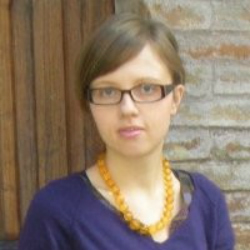
Part of this involves ensuring schools have an adequate supply of meals for those students that require them. In achieving these goals, the ability to track the delivery of the meals as well as possible aspects on the best utilisation of funds are key measures of success for the programme.

“This project is allowing us to explore how supporting innovation, through the introduction of solutions based on blockchain technology, can contribute to strengthening the effectiveness and efficiency of the Tunisian national school meals programme,” said Maria Lukyanova, the United Nations World Food Programme Representative and Head of Country Office for the Republic of Tunisia.
The Tunisian school meals programme
The Tunisian government operates a school meal programme. It designed this to offer one fresh meal a day to underprivileged students in its primary and secondary educational system. The meal programme currently serves approximately 6,000 schools. In recognising the importance of nutrition as part of a broader goal to ensure and improve educational achievements, the Ministry of Education’s programme aims to ensure that children from underprivileged backgrounds meet their nutritional requirements.
In seeking to improve the system and to track the quality of the meals provided, the Ministry of Education is exploring the utilisation of blockchain-based tracking. The initial implementation involves the roll out of a scheme to feed 1,500 primary school children. The ultimate goal, if the trial is successful, is to roll out this scheme to all 400,000 Tunisian school children currently receiving food assistance.
For the United Nations World Food Programme, Devery will train personnel on the ground to use and maintain the technology into the future. “Blockchain technology has the potential to impact billions of people through bridging the gap between the physical and digital world. Ensuring the safe delivery of the food to children via blockchain technology is a cause we truly believe will impact the lives of many to come” – Andrew Rasheed, founder and CEO of Devery.
Devery and EVE
Devery will provide the technical advisory and development capability to build, train and utilise:
- an accountable, and transparent, system of tracking meal deliveries
- reporting issues directly to the Ministry in real time.
Though this is not explicitly stated it is probable that this initiative exploits the Devery Protocol, a decentralized verification platform which enables marking and tracking over the Ethereum network. Theis protocol enables manufacturers, brands, retailers and any other party to assign unique signatures to products, services or digital goods sold, issued and traded online.
Unique signatures are stored on the Ethereum network and can be queried to determine contextual data (including location, date, manufacturer/point-of-origin and the identification of the verifying party). Verification is not limited to the sale of physical goods and services, and can extend to verifying the authenticity and legitimacy of any digital goods and services (such as certificates and courses).
The protocol is the base layer of the ‘Devery ecosystem’ which Devery hopes will be relevant for:
- building application level verification services
- integration with any existing e-commerce stores, applications or services.
Devery wishes to foster a competitive market of third-party verification services for specialty markets, including:
- the clothing and apparel industry
- technology
- food markets
- raw materials
- education
- other digitally sold goods and services.
An operational token, the Entry Verification Engine (EVE), is the engine that powers the protocol. The EVE token is required to generate unique signatures and contextual data on the protocol. Any application that builds on top of the Devery protocol requires the user to spend EVE tokens, which are received by the owner of the application as a fee for their verification services.
What does this mean
It seems simple and unflashy. Yet feeding underprivileged children matters, not only for their physical health but also for scholastic success.
If this initiative succeeds, the World Food Programme expects to use the technology developed to assist with delivery of food in other missions around the world. This would be a major step forwards, especially for an organisation where transparency in challenging circumstances is difficult to demonstrate, though World Food Programme’s ‘support’ for the Devery EVE token (often unfavourably associated with ICOs) may raise questions.

























